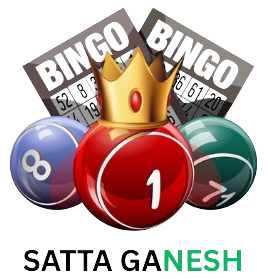The Complete Guide to Lottery Information: Everything You Need to Know
Introduction
Lotteries have fascinated people for centuries. From the early days of raffles and number draws to today’s multi-million-dollar jackpots like Powerball and Mega Millions, the dream of turning a small ticket into life-changing wealth has always attracted millions.
But beyond the dream, it’s important to understand how lotteries work, their history, the different types, and the best way to approach playing responsibly. In this guide, we’ll cover everything you need to know about lotteries, whether you’re just curious or planning to participate.
1. What Is a Lottery?
A lottery is a form of gambling where people purchase tickets and numbers are drawn randomly to determine winners. The prizes range from cash to cars, houses, or even scholarships in some regions.
- Ticket purchase – The entry step for players.
- Random draw – Ensures fairness and transparency.
- Prizes – Cash, goods, or services offered to the winners.
Lotteries are usually regulated by governments, making them legal and safer compared to informal betting.
2. A Brief History of Lotteries
Lotteries have a fascinating history that dates back thousands of years:
- Ancient China (200 BC): The “Keno Slip” helped fund the Great Wall of China.
- Europe (15th Century): Used to raise money for town defenses and poor relief.
- Colonial America (1600s): Lotteries financed schools, bridges, and even Harvard University.
- Modern Times: Lotteries became state-run organizations generating billions in revenue worldwide.
This history shows that lotteries are not just about winning money – they have funded important causes.
3. Types of Lotteries
Lotteries are not all the same. Some of the most common types include:
Number Lotteries
- Players choose numbers from a set (e.g., 1–69 in Powerball).
- A draw determines the winning combination.
Raffle Lotteries
- Tickets have unique codes.
- Winners are picked through a random draw.
Instant Lotteries (Scratch Cards)
- Quick results with scratch-off tickets.
- Smaller prizes compared to jackpot draws.
Multi-National Lotteries
- Played across countries (e.g., EuroMillions, Mega Millions).
- Bigger prize pools due to wider participation.
4. How Do Lotteries Work?
Understanding the process helps players know what they are paying for:
- Ticket Sale – Players buy a ticket online or offline.
- Random Draw – Numbers are drawn via certified random machines.
- Prize Distribution – Winners claim their prizes within a fixed period.
- Government Allocation – A portion of funds goes to public projects like education, infrastructure, or health.
Note: In most countries, lottery winnings are subject to taxation, so winners don’t always take home the full advertised amount.
5. Why Do People Play the Lottery?
Lotteries are popular because of:
- Dream of Wealth: Turning a small investment into millions.
- Entertainment Value: Excitement in watching the draw.
- Charity Support: Some lotteries support public causes.
- Hope & Motivation: Gives people a sense of possibility.
6. Tips for Playing the Lottery Responsibly
While lotteries are fun, they should never be seen as a guaranteed way to make money. Here are some smart lottery tips:
Set a budget and stick to it.
Treat it as entertainment, not income.
Avoid chasing losses.
Join lottery pools to increase chances at lower costs.
Always buy tickets from authorized sellers.
7. Myths and Facts About Lotteries
Myth 1: Certain numbers are luckier than others.
Fact: All numbers have equal chances in a random draw.
Myth 2: Buying more tickets guarantees a win.
Fact: More tickets only increase probability slightly, but no guarantee.
Myth 3: Lotteries are scams.
Fact: Government-run lotteries are regulated and legitimate.
Myth 4: Past results affect future draws.
Fact: Each draw is independent and random.
8. The Role of Lotteries in Society
Lotteries do more than make winners rich. They:
- Fund public education programs.
- Support infrastructure projects.
- Provide resources for healthcare initiatives.
- Contribute to community development.
For example, in the U.S., state lotteries contribute billions annually to public schools.
9. Online Lotteries: The Future of Gaming
With technology, playing the lottery has become easier:
- Mobile apps allow ticket purchases anytime.
- Online draws are transparent and live-streamed.
- Global participation makes jackpots larger.
However, players should always use official websites to avoid fraud.
10. Final Thoughts
Lotteries are more than just a game of chance. They have shaped history, built communities, and continue to inspire millions of people worldwide.
If you choose to play, remember:
- It’s about hope and entertainment, not guaranteed income.
- Play responsibly and smartly.
- Support lotteries that contribute to good causes.
The lottery will always remain a fascinating part of human culture – combining luck, dreams, and opportunity.
Frequently Asked Questions (FAQs)
Q1: Is playing the lottery legal?
Yes, if purchased from official government-regulated platforms or vendors.
Q2: Can I increase my chances of winning?
You can improve odds slightly by buying more tickets or joining pools, but winning is always random.
Q3: Are online lotteries safe?
Yes, as long as you use authorized and official lottery websites.
Q4: Do I have to pay taxes on lottery winnings?
In most countries, yes. The percentage varies depending on the region.
Q5: What’s the biggest lottery prize ever won?
The largest jackpot was a $2.04 billion Powerball in the U.S. (2022).




